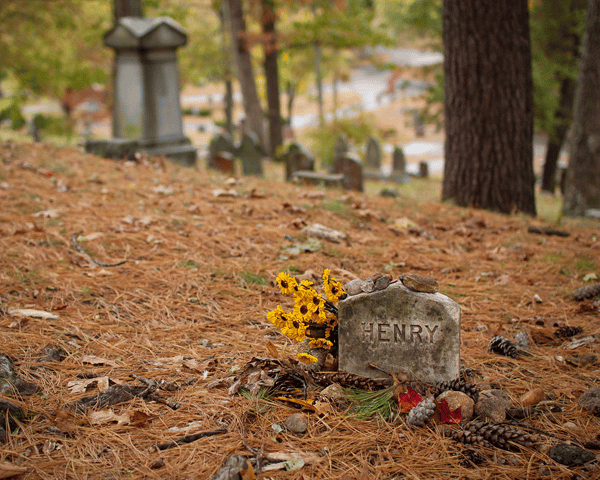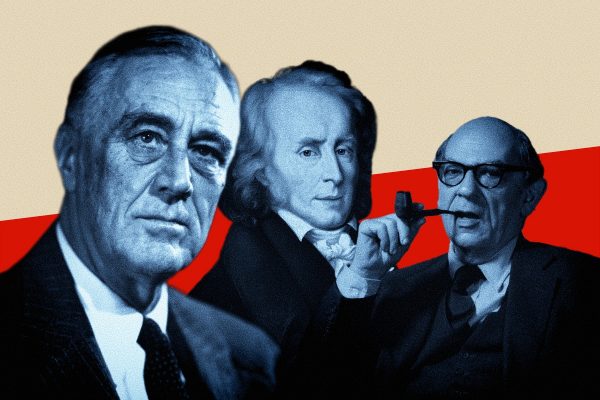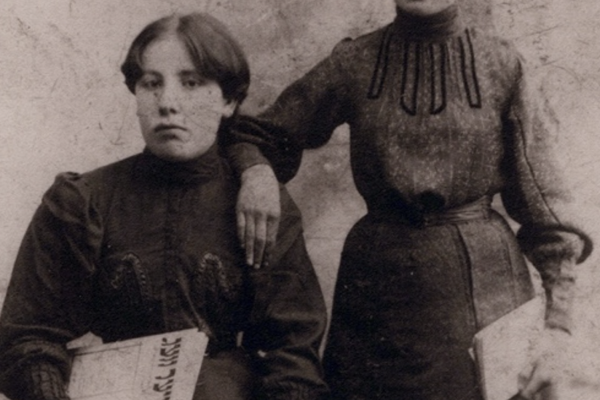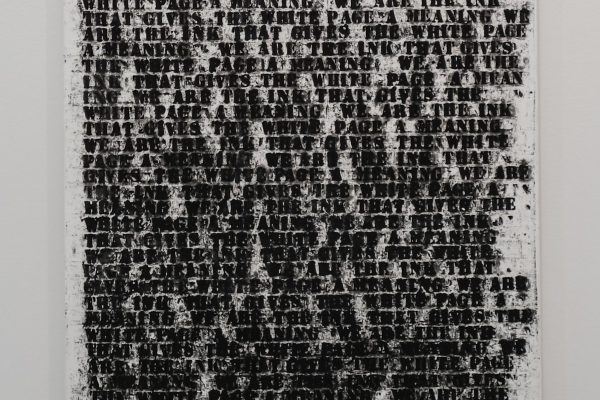It was a bright winter day when I visited the replica of Henry David Thoreau’s cabin at Walden Pond, and therefore very cold. I was with a handful of classmates whose parents had chosen not to send us on a more expensive and ambitious school trip. In preparation we had read selections from Walden, anodyne passages in which the author communed with nature’s splendor.
In spite of the chill, the cabin seemed comfortable. Indeed, that was my strongest impression: it contained no luxuries but was adequate for one reclusive man. But our guide that day explained that Thoreau was not exclusively a homebody. His cabin was not far from town, and he frequently made the short journey to spend time with his family. For a fairly solitary middle schooler who had just been denied a chance at adventures in warmer, more distant climes, the experience at Walden was medicinal: a good life might be had this way, too.
The therapeutic qualities in Thoreau’s life and work are largely stripped from Kathryn Schulz’s recent New Yorker story, “Pond Scum,” a viciously critical essay seemingly designed to make waves, which it has. “Who was this cold-eyed man who saw in loss of life only aesthetic gain, who identified not with the drowned or the bereaved but with the storm?” she asks. (Well, it might have been many a romantic, from J.M.W. Turner to Ivan Aivazovsky.) She decides that Thoreau is an opponent of the demos, a civic cretin who spurns adult engagement with the public in favor of an adolescent attachment to something like the philosophy of Ayn Rand, avant la lettre.
Elements of the thesis—for instance, that Thoreau was not nearly as ascetic as is commonly believed—are well traveled. John Muir, an admirer who visited Thoreau’s woods in 1883, remarked, “It is only about one and a half or two miles from Concord, a mere saunter, and how people should regard Thoreau as a hermit on account of his little delightful stay here I cannot guess.” More importantly, Schulz misreads Thoreau’s politics, relying, in the process, on a practice of one-sided quotation that she condemns in others.
The misanthropy that exercises Schulz has been a matter of debate for generations of readers. In Thoreau in the Human Community (1980), Mary Elkins Moller argues with earlier writers who saw Thoreau as irredeemably disingenuous and withdrawn. She finds “ample evidence of a very real desire for friendship and for love, as well as an impressive commitment to ‘serve the public.’”
Robert Louis Stevenson, whom Schulz quotes approvingly, put a finer point on it. “No one else, to my knowledge, has spoken in so high and just a spirit of the kindly relations; and I doubt whether it be a drawback that these lessons should come from one in many ways so unfitted to be a teacher in this branch,” he wrote. “The very coldness and egoism of his own intercourse gave him a clearer insight into the intellectual basis of our warm, mutual tolerations.”
Schulz is not having it, and it is easy to see why. Thoreau had many mean-spirited things to say about his fellow man. The important issue, though, is to what purpose he put his sometimes-vocal disdain. One might see a rejection of the public, or one might see frustration in the face of a heartbreaking world: “Entertaining impossibly high expectations, he at times voiced bitter disappointment in the human race,” Moller writes.
To prefer the first interpretation is to dismiss the essence of Thoreau’s political vision. Schulz rightly abhors the sort of context-free quotation that has made Thoreau an unquestioned figure of inspiration for simple-lifers, yet she boils Thoreau’s politics down to one sentence: “That government is best which governs not at all.” There you have it; he is anti-democratic, against society, against the collective effort at the public good.
Except if you do the small diligence of reading only the rest of that sentence, you will find that Schulz’s conclusions are quite lacking. “‘That government is best which governs not at all;’ and when men are prepared for it, that will be the kind of government which they will have.”
It is clear in this writing, and throughout “Resistance to Civil Government,” that Thoreau is on a moral campaign to encourage his fellow citizens to be good enough to be maximally free, though he doubts they are up to the task, thereby affirming the need for able governance. And he stresses the importance of civic debate in achieving that condition. “To speak practically and as a citizen, unlike those who call themselves no-government men, I ask for, not at once no government, but at once a better government,” he writes. “Let every man make known what kind of government would command his respect, and that will be one step toward obtaining it.”
Thoreau’s brief on behalf of conscience is, as Schulz notes by reference to same-sex marriage refusenik Kim Davis, potentially at odds with the demands of civic life. But it is worth remembering that Thoreau saw conscience not as a weapon against the state but rather as a source of its improvement, a means of reforming the state such that it could more fully advance the goals of the human community. “A very few, as heroes, patriots, martyrs, reformers in the great sense, and men, serve the State with their consciences,” he wrote. He was not wrong. There are the likes of Davis, but civil disobedience was also the tool of Gandhi and Martin Luther King, to mention only two. As ever, civil disobedience is a well of productive tension in political life. We both accommodate and discard it at our peril.
Thoreau saw in the particular actions of the government of his time, not in government itself, injustice in need of repair. “I cannot for an instant recognize that political organization as my government which is the slave’s government also.” Schulz thinks Thoreau’s abolitionism amounts to “good ends [reached] by bad means” because he was so arrogant and contemptuous toward others. Yet he had a powerful ethical sensibility, quite beyond what most American liberals allow in pursuit of racial justice. Arguing on behalf of emancipation, as well as an end to the American war in Mexico, he wrote, “If I have unjustly wrested a plank from a drowning man, I must restore it to him though I drown myself.” One might say Thoreau was a reparations man.
It is hard to know. Reading the controversies of the present into the words of the past can be a foolish game, and Schulz plays it with abandon, putting Thoreau in the category of Ayn Rand and preppers—those insurrectionist types who, fearing apocalypse or tyranny, abandon society and stockpile guns, ammunition, survival gear, and a bomb shelter’s worth of freeze-dried chicken nuggets. Both comparisons are unsound.
While it is true that Thoreau did not live so simple a life at Walden as he claimed, he was no paranoid hoarder. He offered legitimate reasons to oppose government actions and among them, again, was not a desire for the dissolution of the body politic but for its improvement. He never sought accumulation, the hallmark of the prepper, who is so mistrustful of the civilization around him, yet so embedded in its political economy, that he can only escape it by owning and patrolling as much of it as possible. All Thoreau wanted was time, and he was willing to give up most goods to obtain it.
As for Rand, her objectivism is distant from Thoreau’s transcendentalism. Metaphysically, they could hardly be more different, the former affirming perfect materialism, the latter investing the individual with mystical capacity. And while objectivism is a rigid apologetics for the selfishness of extremist capitalism, transcendentalism was polysymic and transgressive, open to varying interpretation and seeking something so fundamentally new that even its adherents were not sure what their “last man” would look like. In contrast, Rand knew precisely where history would end, if it did.
Where Rand viewed the world in terms of stark division between producers and parasites, Thoreau’s visions are full of contradiction and complexity. Schulz quotes his uncharitable streak: “Often the poor man is not so cold and hungry as he is dirty and ragged and gross. It is partly his taste, and not merely his misfortune. If you give him money, he will perhaps buy more rags with it.” Yet, elsewhere, he writes, “No man ever stood the lower in my estimation for having a patch on his clothes.”
Schulz is right that “the mature position, and the one at the heart of the American democracy, seeks a balance between the individual and the society” and that “Thoreau lived out that complicated balance.” But to believe that he forsook this complexity is just to invert the very sort of cherry-picking that has left many readers with a simplistic perception of Thoreau as nature boy. He has many guises: selfish, elitist hypocrite; nonconformist; spiritual seeker; beacon to the prisoner of conscience; and, not least, earnest striver whose flawed example still has much to teach us.








